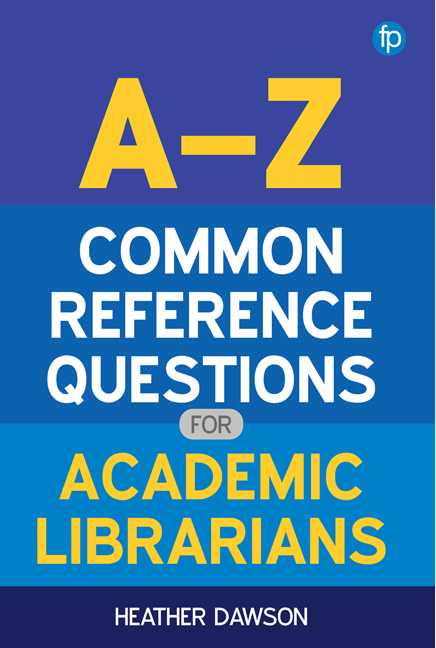Text and Data Mining
Published online by Cambridge University Press: 19 March 2020
Summary
Typical questions
• Which publisher's websites have APIs that facilitate TDM activities?
• Is data mining legal in the UK?
Starting points
• Text and data mining (TDM) is a growing area of research that is linked to the field of big data. Very basically, they are methods of research using special software to explore and analyse large amounts of data to reveal hidden patterns, concepts and themes.
• This is highly specialised work that requires access to large scale data and the necessary skills to manipulate it. Many scholarly publishers, databases and products offer APIs (Application Programming Interfaces) to allow users with programming skills to extract data for research purposes. Students should always check if local experts are available.
• Another key concern is the appropriate use of licenses. Users should always be advised to check these carefully. Library staff working with serials/electronic subscriptions are usually aware of conditions for their own databases. There may also be specialist subject support and/or research support librarians who can assist. The general resources listed below will help supplement these. Many are provided by digital humanities specialists. Technology is advancing rapidly so these may need to be re-checked frequently!
Recommended resources
Key organisations
Association for Computers and the Humanities
ach.org
US organisation that supports computer-assisted research, teaching and software and development in the humanities. Website lists courses, news and events.
Alliance of Digital Humanities Organizations
adho.org
Promotes and supports digital research and teaching across all arts and humanities disciplines. Supports the Digital Studies/Le champ numérique (www. digitalstudies.org). Open access, peer-reviewed electronic journal from the Société canadienne des humanités numériques (CSDH/SCHN).
National Centre for Text Mining (NaCTeM)
www.nactem.ac.uk
World's first publicly-funded text mining centre. Operated by the University of Manchester. Provides support, advice and information on TM technologies for the UK academic community. Website includes news, courses and links to resources.
OpenMinTeD (Open Mining Infrastructure for Text and Data)
openminted.eu
EU-funded project aiming to develop a registry for text and data mining. It provides news and links to information on courses, events and online tutorials suitable for researchers.
Study guides and tools
Crossref Text and Data Mining Service [Specialist]
tdmsupport.crossref.org
Crossref is a non-profit organisation of publishers. It provides metadata API for researchers to access the full text of content identified by Crossref digital object identifiers (DOIs) from different publisher sites.
Information
- Type
- Chapter
- Information
- A-Z Common Reference Questions for Academic Librarians , pp. 340 - 341Publisher: FacetPrint publication year: 2019
